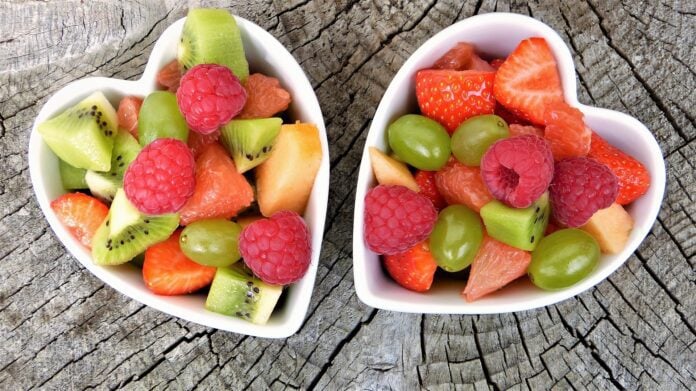Fruits are a healthy and essential part of our diet, providing a rich source of vitamins, minerals, and fiber. However, fruits also contain natural sugars, which can add up if consumed in large quantities. This article will provide a comprehensive overview of the sugar content in various fruits.
Berries:
Berries are a popular type of fruit that comes in various flavors, such as strawberries, blueberries, raspberries, and blackberries. Berries are low in sugar and calories, making them an excellent choice for a healthy snack or dessert. The table below provides a list of different berries and their sugar content per 1-cup serving:
| Berry Type | Sugar Content (per 1 cup serving) |
|---|---|
| Strawberries | 7 grams |
| Blueberries | 15 grams |
| Raspberries | 5 grams |
| Blackberries | 7 grams |
| Cranberries | 4 grams |
Citrus Fruits:
Citrus fruits are a good source of vitamin C and are known for their tangy flavor. Citrus fruits are low in sugar and calories, making them an excellent choice for a healthy snack or drink. The table below provides a list of different citrus fruits and their sugar content per 1 medium-sized fruit:
| Citrus Fruit | Sugar Content (per medium fruit) |
|---|---|
| Orange | 12 grams |
| Grapefruit | 9 grams |
| Lemon | 0.6 grams |
| Lime | 1 gram |
Tropical Fruits:
Tropical fruits are popular for their sweet and exotic flavors, such as pineapple, mango, and papaya. However, tropical fruits are often higher in sugar and calories than other types of fruits. The table below provides a list of different tropical fruits and their sugar content per 1-cup serving:
| Tropical Fruit | Sugar Content (per 1 cup serving) |
|---|---|
| Pineapple | 16 grams |
| Mango | 23 grams |
| Papaya | 11 grams |
| Banana | 14 grams |
| Kiwi | 6 grams |
Melons:
Melons are a refreshing and hydrating fruit that comes in various types, such as watermelon, cantaloupe, and honeydew. Melons are low in sugar and calories, making them an excellent choice for a healthy snack or drink. The table below provides a list of different melons and their sugar content per 1-cup serving:
| Melon Type | Sugar Content (per 1 cup serving) |
|---|---|
| Watermelon | 9 grams |
| Cantaloupe | 12 grams |
| Honeydew | 16 grams |
Conclusion:
In conclusion, fruits are an essential part of our diet, providing a rich source of vitamins, minerals, and fiber. However, fruits also contain natural sugars, which can add up if consumed in large quantities. By being aware of the sugar content in different fruits, we can make informed choices about what we consume. The tables provided above can serve as a reference to help individuals make more informed decisions about the fruits they consume.


